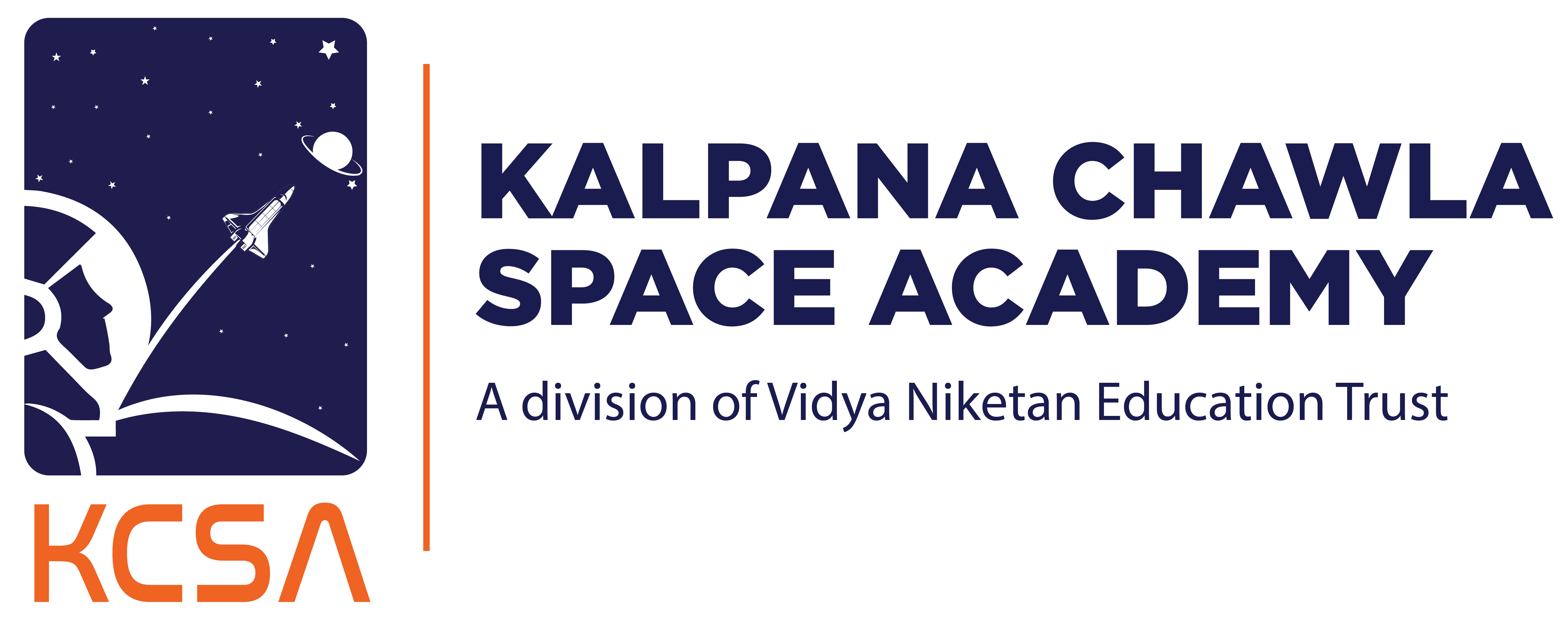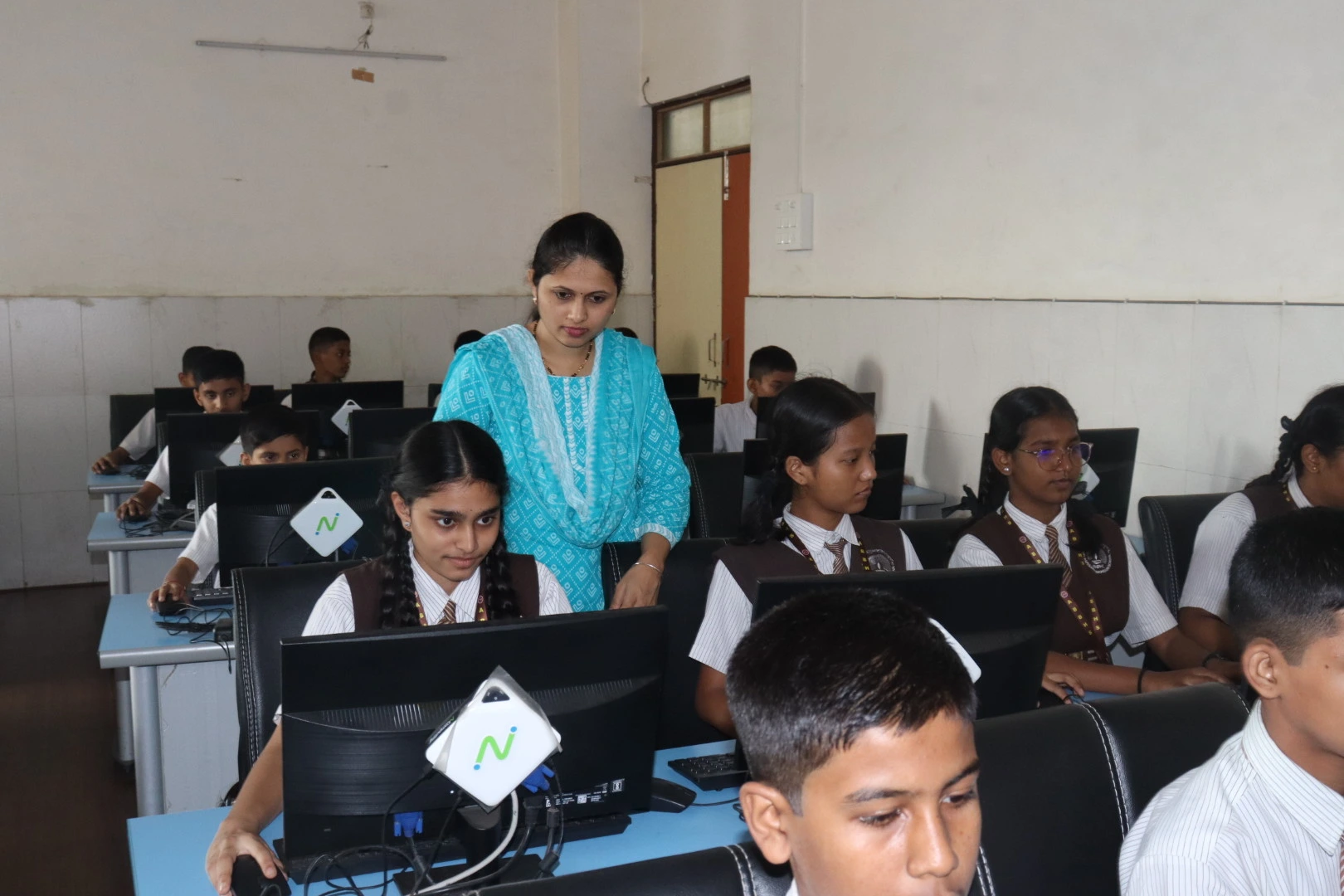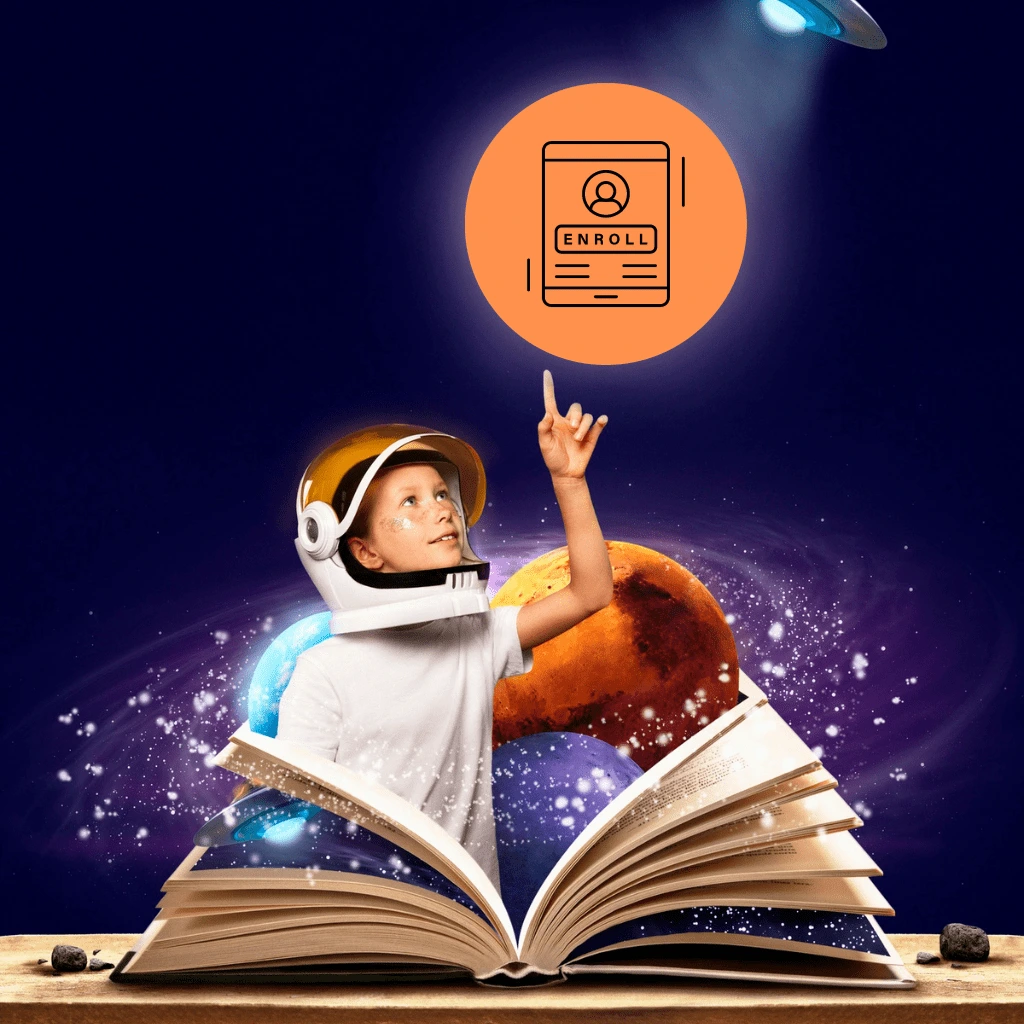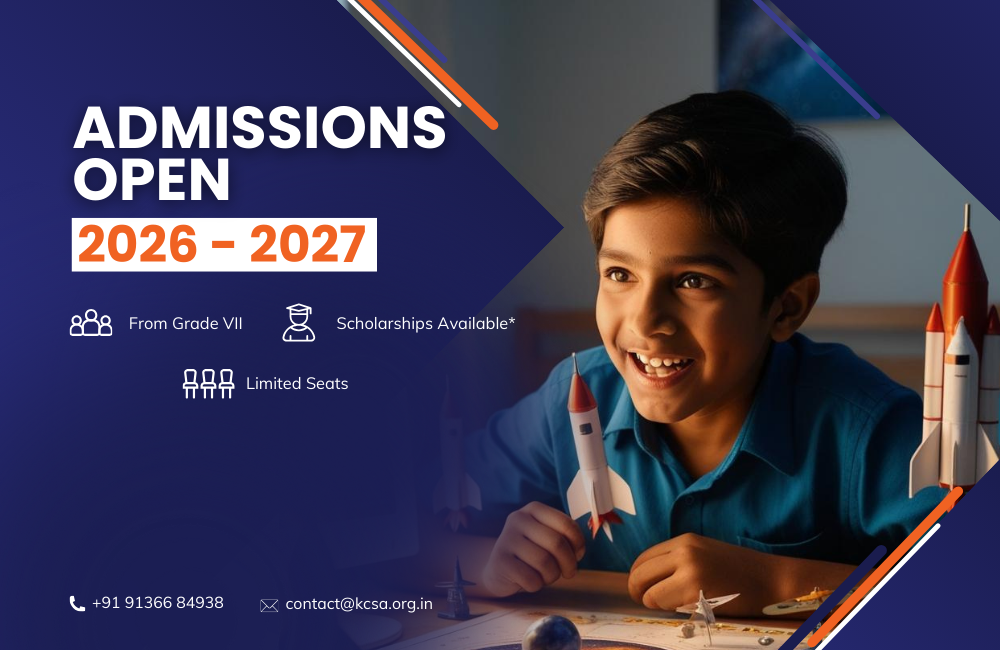The best of the students will get admission in KCSA from different parts of India. For example, very limited students are handpicked out of ample applicants who appear for the Kalpana Chawla Space Academy entrance test (KCSAET). Final interview panel includes senior researchers/faculties/scientists who assess the students, who are qualified in KCSAET. The young Kalams and Kalpanas would come out with flying colours, clearing multiple selection rounds. Please refer our website for details.
KCSA Entrance
Test Registration
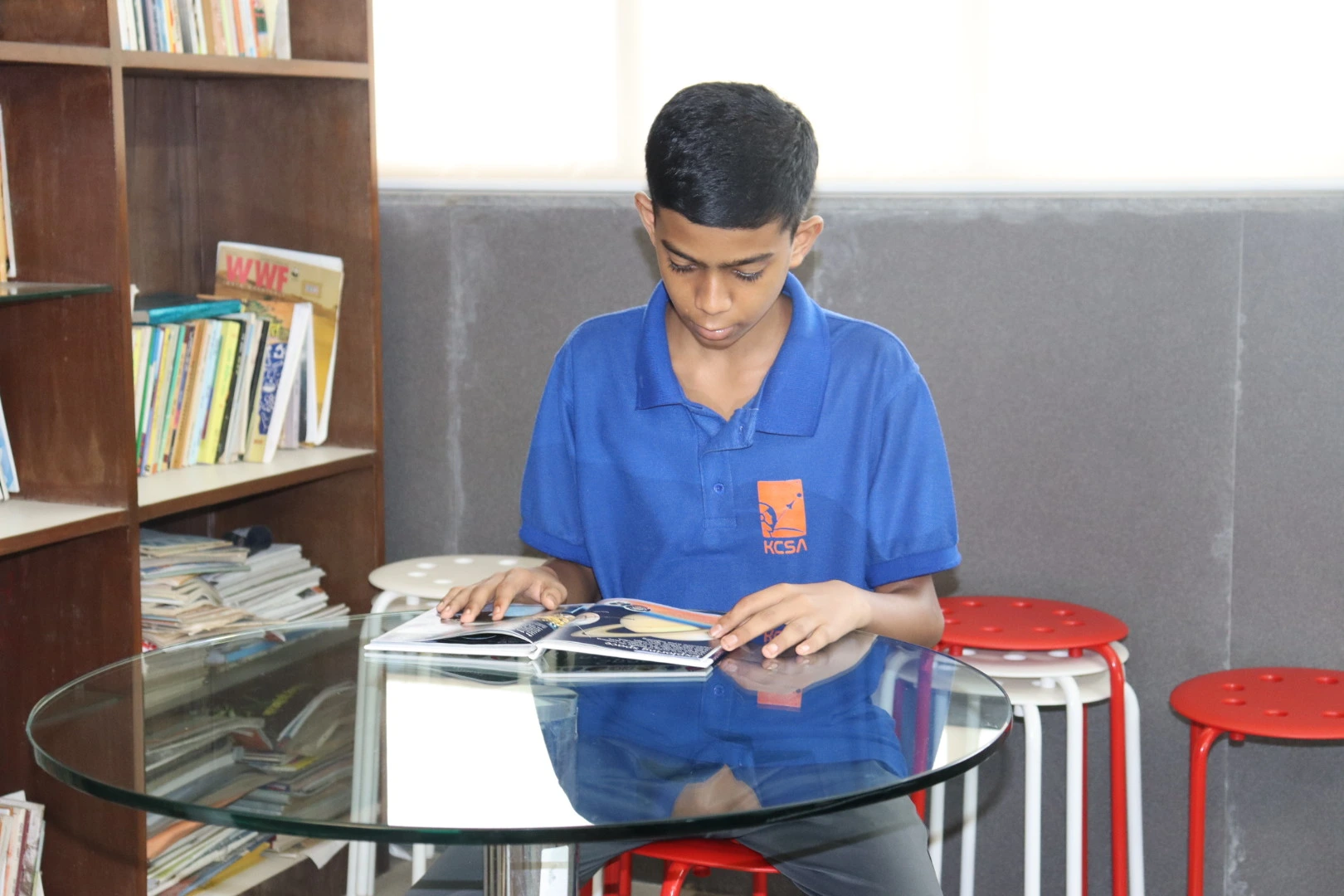
Eligibility and selection process
Student selection will be based on a Pan-India entrance examination (offline). Students of 6th standard would be eligible to appear for the KSCAET. The eligibility criteria shall be declared at a later date. After clearing the entrance exam they would appear for multiple rounds of selection which would test their problem-solving, creativity and lateral thinking skills. The final round would be the interview. The batch size shall be of 50 students which is subject to change as per management discretion.
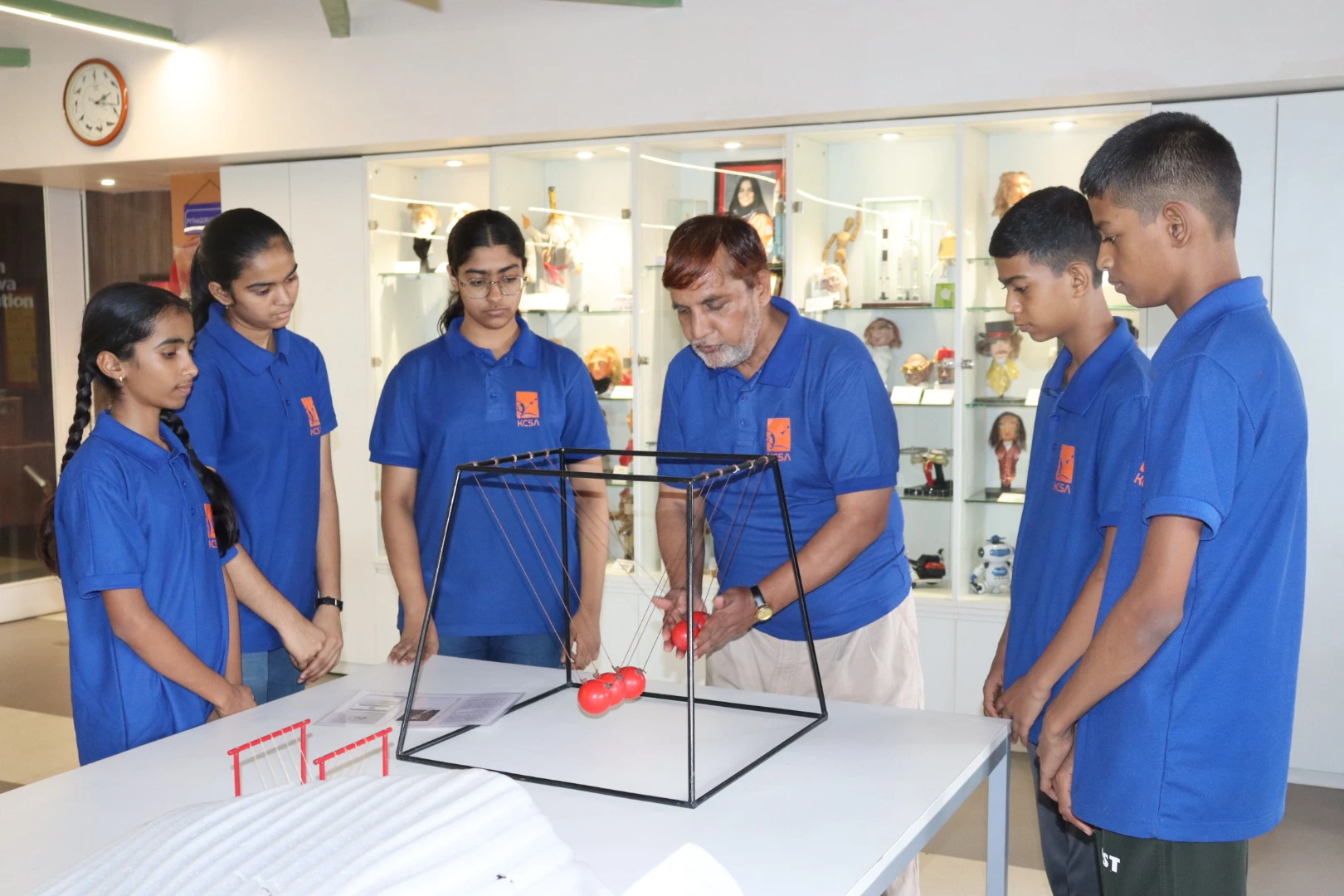
Special program!
Our current program features 22 dynamic students on scholarship from the Adv. Bapusaheb Bhonde High School, who have been handpicked for the first-ever batch of 2023-2024. Their participation in the program will take place for 3 to 4 hours after their regular school, each week.

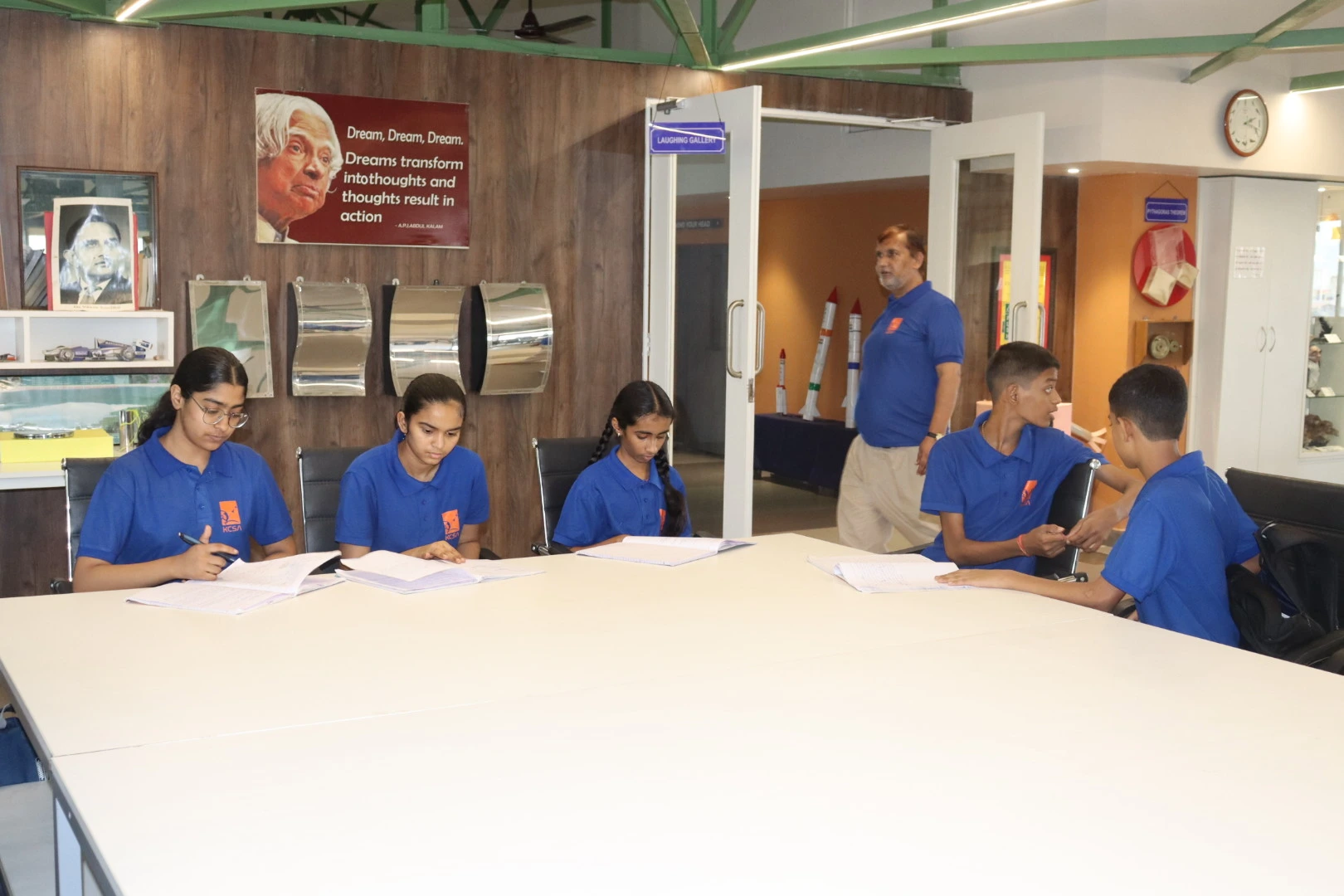
Upcoming batches
For the next academic year, KCSA have developed a larger framework of curriculum, which will be introduced to students in Std. 7. We are ready with establishment of the infrastructure for a full-time residential facility. KCSA welcomes all new aspirant learners who shall be moulding their future and career with scientific blend leading to nation building.

Scholarship
We do offer scholarships. As a part of our vision, the KCSA Scholarships were instituted to help those who are brilliant in academics and those who deserve world-class education but don’t have the means. The scholarship shall be applicable from the second year. The number of scholarships offered shall be declared at the commencement of the academic year. Any changes to the above rule of the scholarship policy is subject to the management discretion.

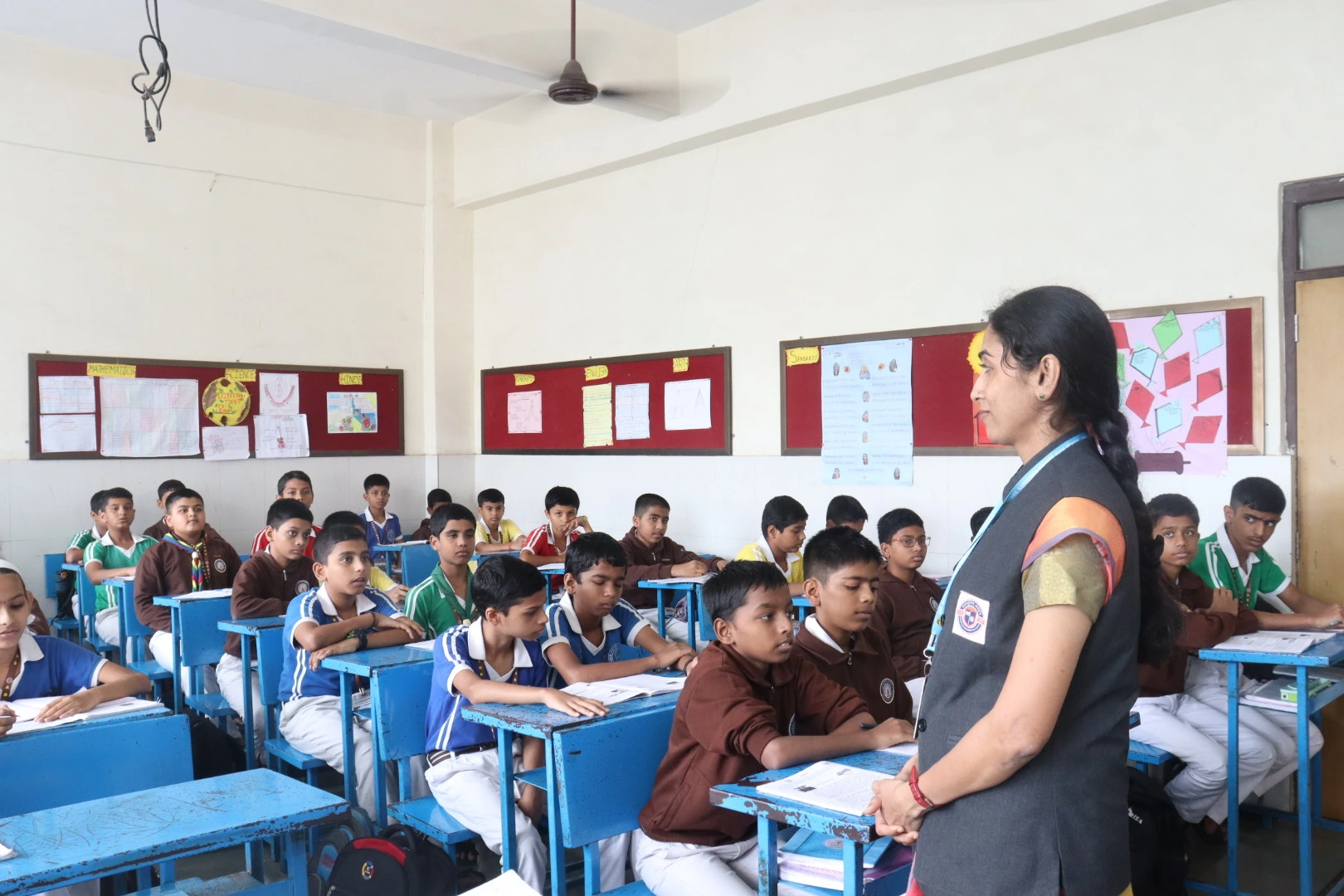
Rules and Policies
Rules and policies for KCSA students typically include guidelines regarding safety protocols, academic conduct, and behavior expectations. These rules ensure a conducive learning environment and adherence to ethical standards in research and experimentation.
They also outline procedures for accessing and using specialized equipment and facilities responsibly, emphasizing teamwork, respect, and the pursuit of scientific excellence.

Parents Testimonials
My son, studying at Kalpana Chawla Space Academy, has shown positive improvements in confidence, discipline and focus on studies. The supportive teachers, motivating environment and overall academic and personal development have left me fully satisfied.
– Ravi Bansode
(Neel Bansode)
After joining the course, Zaid has shown remarkable growth in confidence, discipline and eagerness to learn new things. We are extremely satisfied with the positive transformation we’ve witnessed in him.
– Asma Rizwan Sayyad
(Zaid Rizwan Sayyad)
अयान के यहाँ आने के बाद से उसकी पढ़ाई में बहुत सुधार हुआ है और विशेष रूप से विज्ञान में उसकी रुचि काफ़ी बढ़ी है। यहाँ के शिक्षा के साथ-साथ हास्टल की सुविधा भी अच्छेसे कियी गयी है ।
– आरिफ़ सय्यद
(अयान मुल्लानी)
येथील शिक्षकांची उपक्रम व प्रयोगांव्दारे मुलांचा अभ्यास घेण्याची पध्दत मुलांना प्रयोगशील करते. आमचा अनुभव खुप चांगला आहे. हॉस्टेलवरील राहण्याची सोयही उत्तम आहे
– श्रीमती सुभाष अहिरराव
मानस किशोर पवार
के.सी.एस.ए. मे स्कूल के साथ-साथ होने वाली पढाई बच्चो की विज्ञान की रूचि बढ़ाती है। हर एक को कल्पना चावला स्पेस एकेडमी जॉईन करनी चाहिए।
– नरेश यादव
साक्षी यादव
के.सी.एस.ए. मध्ये मुलांना प्रोजेक्ट्समुळे प्रत्यक्ष खूप छान शिकायला मिळते. शिवाय, हॉस्टेलची व्यवस्था खूप छान आहे.
- हिरा झांबरे
चिराग काळे
Students Testimonials
We live in a wonderful world of scientific experiments with 10 unique labs. Through Aero Modelling, we build models of rockets like PSLV and GSLV, which helps us learn practically. In Astrophysics, we perform hands-on activities such as using a lux meter, screw gauge, and spectroscopy. The ISRA subject helps us understand how space agencies work in real life.
-Shivam Katore
(KCSA Student)
At KCSA, learning is fun and hands-on. We explore robotics, technology, and lab instruments, and conduct exciting chemical experiments like producing CO₂ and H₂O. Educational trips, webinars, and guest lectures by scientists give us real-world exposure and new ideas. I truly enjoy being a part of KCSA
-Zaid Rizwan Sayyad
(KCSA Student)
KCSA has 10 different labs, and my favourite are the Aeromodelling and STEAM labs. In the STEAM lab, we build mini robots like clap sensor robots and DC generators. I enjoy doing practical work and have performed experiments such as the formation of CO₂ and H₂O and using a magnetic stirrer. We also have a Science Floor and a well-equipped KCSA library, which makes learning more interesting.
-Ayan Mulani
Kalpana Chawla Space Academy (KCSA) is Asia’s first academy to offer space education from Std. 7. With 10 advanced labs and hands-on learning in science and space science, learning here is exciting. The guidance from our experienced and supportive faculty makes KCSA a great place to learn and grow
- Manas Pawar
I like KCSA because I learn about space science in a fun and practical way. We have 10 labs where we create models like Chandrayaan, Aryabhata, fighter jets, and rockets. The Science Floor has interesting exhibits such as Newton’s Cradle, arc indicators, and film projectors, which make learning exciting.
-Vedant Vanve
KCSA offers many hands-on activities like crafts and experiments through 10 special labs. In the STEAM lab, we build robots and work on robotics projects. We also attend webinars by scientists and go on science trips, which help us learn beyond the classroom.
-Chirag Kale
KCSA is a wonderful place where we study space and explore planets, stars, and the universe in an exciting way. The syllabus is mostly practical-based, which helps us learn through experiments, activities, and observation. Our teachers encourage curiosity and guide us patiently, making space science easy, enjoyable, and meaningful
-Shlok Gupta
(KCSA Student)
KCSA offers an engaging way to learn space and astronomy through hands-on activities. The practical-based syllabus makes concepts easy to understand and remember. Supportive teachers encourage curiosity and scientific thinking.
-Ritam Mali
(KCSA Student)
My name is Neel Bansode, and I am a Std. 7 student. KCSA has many interesting activities like project and model making across its 10 dedicated labs. My favourite labs are STEAM and Aeromodelling, where we build exciting models. KCSA inspires me to achieve my dream of becoming a space scientist.
- Neel Bansode
(KCSA Student)
I am proud to be a part of KCSA, where learning is hands-on and practical. Our mentors explain concepts clearly, encourage scientific thinking, and ensure safety during lab activities. KCSA builds curiosity and a strong interest in science and space.
- Aaliya Baig
Learning at KCSA has helped me grow not only academically but also mentally and creatively. It has increased my interest in Science, Space and Innovation. I feel proud to be a student of this Academy.
-Laxmi Yadav

- Students must adhere to strict safety guidelines when handling equipment, conducting experiments, and participating in practical activities related to space science and technology.
- Proper attire, including safety goggles, lab coats, and protective gear, may be required during experiments or visits to laboratories and observatories.
- Plagiarism and academic dishonesty are strictly prohibited. Students must cite sources appropriately and submit original work in assignments, research papers, and projects.
- Collaboration policies should be clearly defined, outlining when group work is permitted and the expectations for individual contributions.
- Respectful behavior towards peers, teachers, and visiting scientists is mandatory. Disruptive behavior, bullying, or harassment of any kind is not tolerated.
- Punctuality and attendance policies ensure students are present for lectures, workshops, and practical sessions, contributing to their overall learning experience.
- 75% attendance is mandatory to be eligible for attempting any examination.
- Guidelines for the proper use, maintenance, and care of specialized equipment, such as telescopes, spectrometers, and simulators, are established to maximize their lifespan and effectiveness.
- Students must receive training and supervision when using high-tech instruments and software to ensure accurate data collection and analysis.
- Ethical considerations in research involving human subjects, animals, or environmental impact must be observed. Institutional review boards (IRBs) may oversee projects to ensure compliance with ethical standards.
- Data integrity and confidentiality policies safeguard sensitive information obtained during research or experimentation.
- Effective communication skills are encouraged through presentations, reports, and discussions on scientific findings and project outcomes.
- Collaboration with peers, faculty members, and external partners promotes teamwork, knowledge sharing, and the exchange of ideas in the pursuit of innovative solutions.
- Guidelines for maintaining physical and mental well-being, including access to counseling services and support networks, ensure students can manage academic pressures and personal challenges effectively.
- Policies on sick leave, emergency procedures, and h title=""ealth insurance coverage are outlined to address unforeseen circumstances and ensure student safety at all times.
